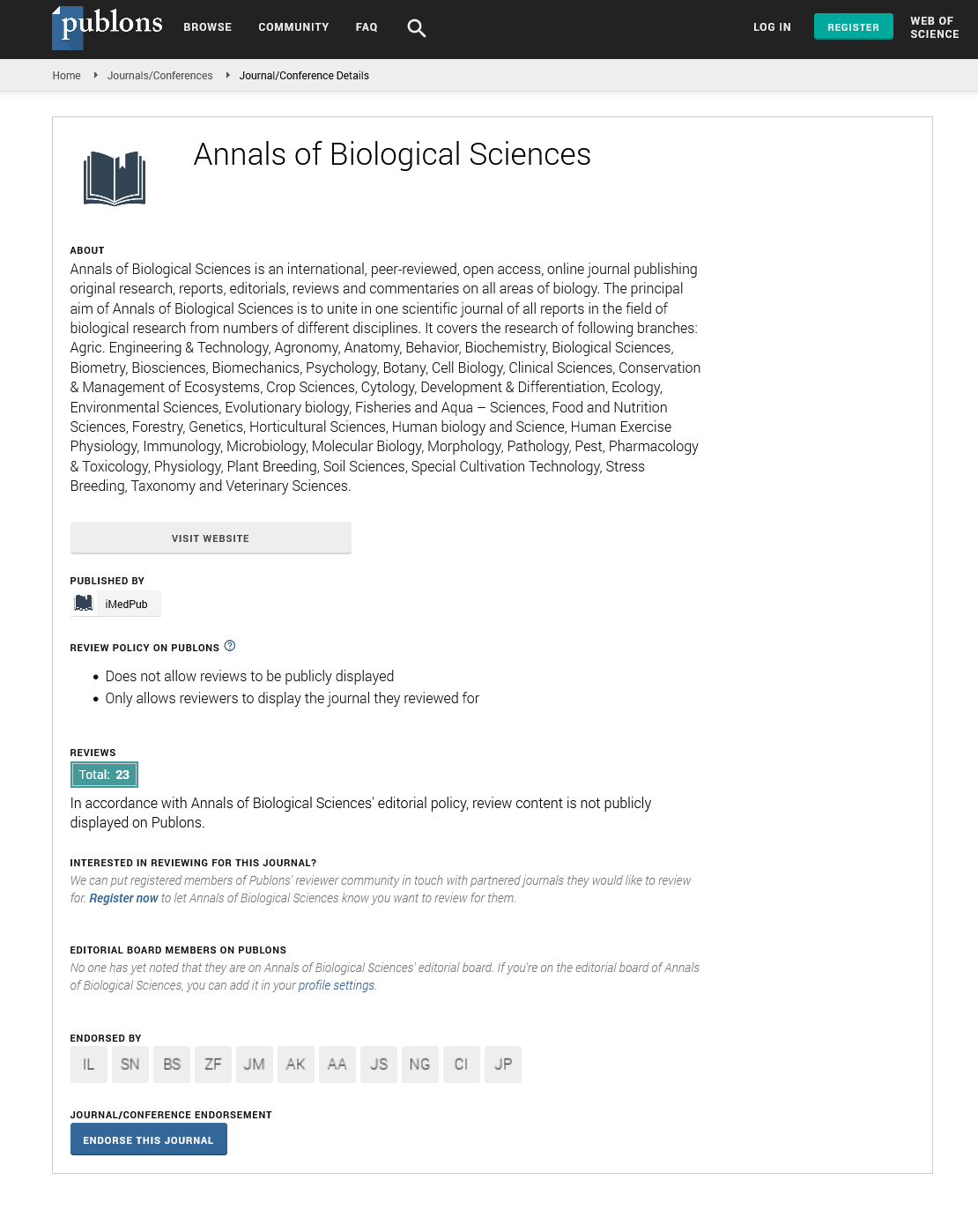ISSN : 2348-1927
Annals of Biological Sciences
Abstract
Pineal and Hypophyseal Responses to Selenium Treatments in Light Deprived Adult Female Wistar Rats
Darkness is a potent stimulus for melatonin secretion. Studies have also reported that pineal and hypophyseal endocrine secretions are influenced by nutritional factors. The study was designed to investigate the combined effect of selenium supplementations and light deprivation on the pineal and hypophyseal secretions in female Wistar rats. 36 female cyclical Wistar rats were divided into the vehicle, High Selenium (HS), Low Selenium (LS), Light Deprived (LD), LD+HS and LD+LS. Rats were orally administered 150 μg/kg and 100 μg/kg of sodium selenite for two weeks. While light deprived rats were maintained under a 6 hr light/18 hr dark cycle, other rats were under a natural 12 hr light/12 hr dark cycle. The result showed that light deprivation led to a significant decrease (p<0.05) in Follicle Stimulating Hormone (FSH) secretion and a significant increase (p<0.05) in plasma melatonin. Selenium supplementations at both doses also improved Luteinizing Hormone (LH) secretion but had no effect on plasma prolactin. At a high dose of selenium supplementation, there was an increase in melatonin secretion. In light deprived rats, selenium supplementations caused a significant decrease (p<0.05) in melatonin secretion at both doses but there was no significant change in plasma levels of FSH, LH and prolactin. The findings indicate differential responses of the pineal and hypophyseal glands to light deprivation and selenium treatments
Author(s): M.J. Adeniyi, F.O. Agoreyo, A.A. Abayomi
Abstract | Full-Text | PDF
Share This Article
Google Scholar citation report
Citations : 406
Annals of Biological Sciences received 406 citations as per Google Scholar report
Annals of Biological Sciences peer review process verified at publons
Abstracted/Indexed in
- Google Scholar
- China National Knowledge Infrastructure (CNKI)
- WorldCat
- Publons
- ROAD
- Secret Search Engine Labs
Open Access Journals
- Aquaculture & Veterinary Science
- Chemistry & Chemical Sciences
- Clinical Sciences
- Engineering
- General Science
- Genetics & Molecular Biology
- Health Care & Nursing
- Immunology & Microbiology
- Materials Science
- Mathematics & Physics
- Medical Sciences
- Neurology & Psychiatry
- Oncology & Cancer Science
- Pharmaceutical Sciences
